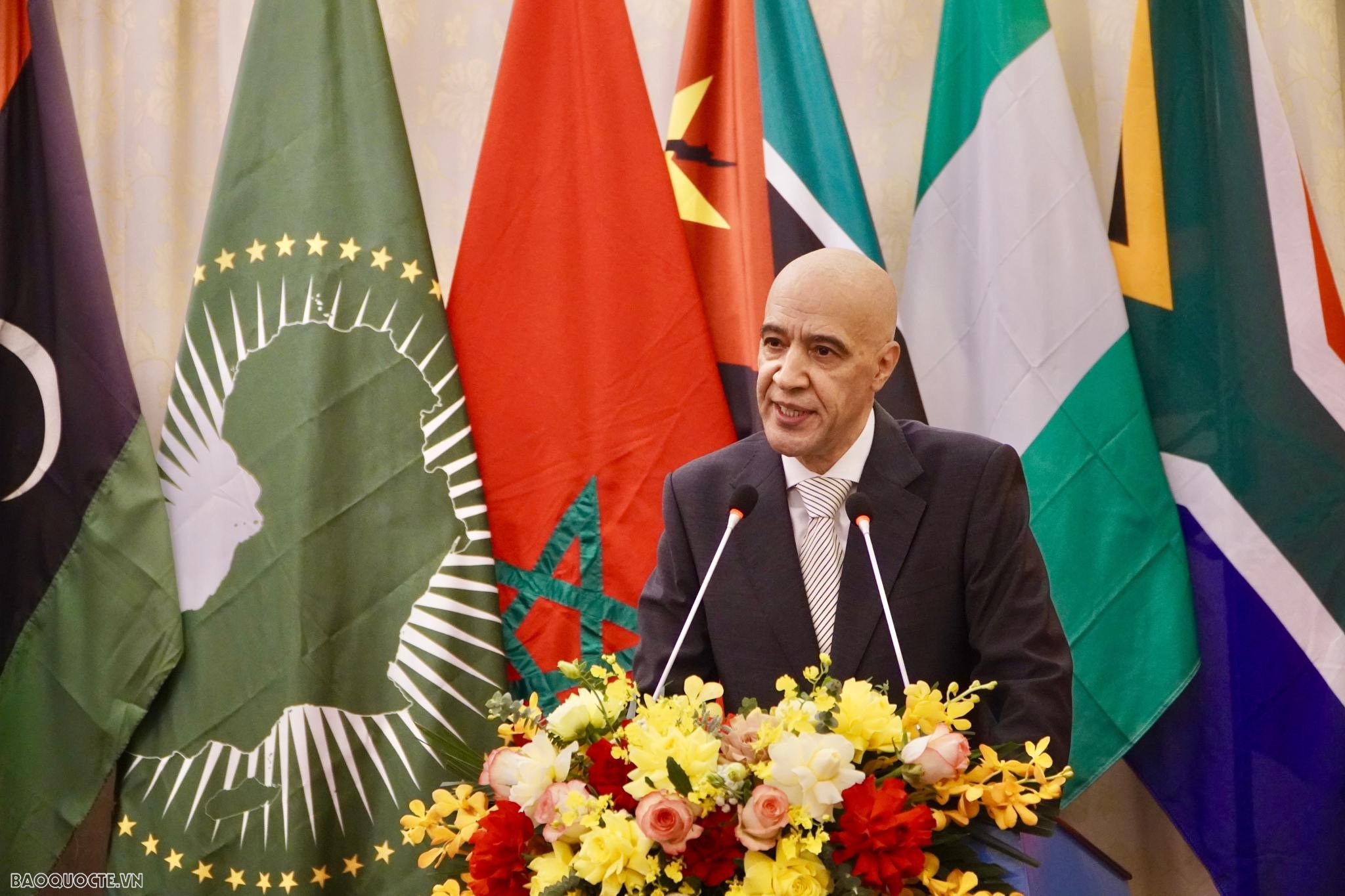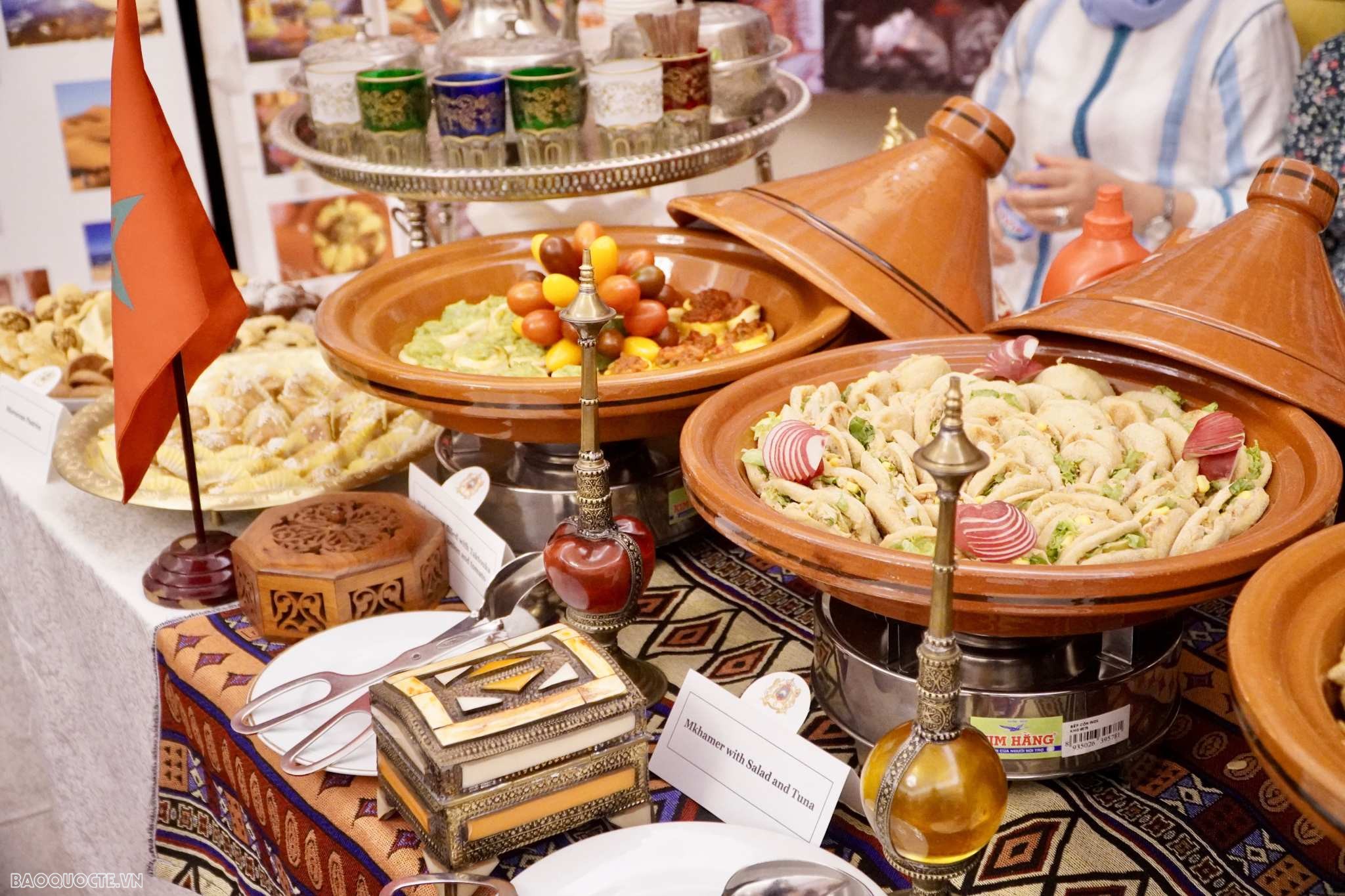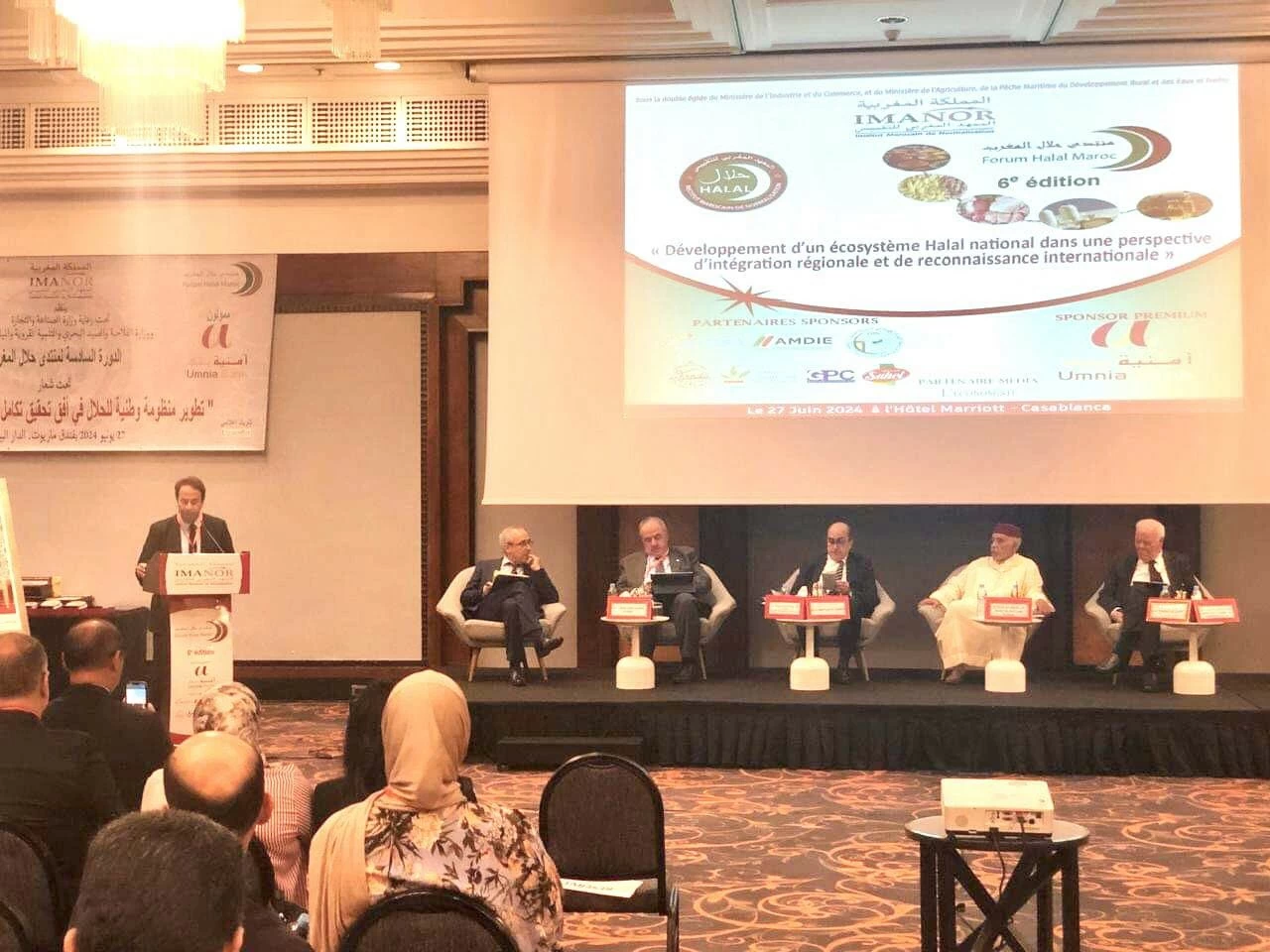
Halal - A promising market for Vietnam-Morocco cooperation
Latest
 |
| Moroccan Ambassador to Vietnam Jamale Chouaibi. (Photo: Tuan Viet) |
Moroccan Ambassador to Vietnam Jamale Chouaibi made these remarks. In an interview with The World and Vietnam Report, Ambassador Jamale Chouaibi gave an overview of the potential for Vietnam-Morocco cooperation in the Halal industry.
How do you evaluate the prospects of Vietnam’s Halal industry?
Vietnam's Halal industry holds significant promise due to economic strengths and strategic positioning. Despite a relatively small domestic Muslim population, Vietnam is situated near countries with large Muslim populations, such as Indonesia and Malaysia. Indonesia alone has over 225 million Muslims, making it the largest Muslim-majority country globally, while Malaysia has around 19 million Muslims. Collectively, the Association of Southeast Asian Nations (ASEAN) region has a substantial Muslim demographic like Brunei Darussalam and Singapore, and the vast markets in Asia like India, Pakistan, and Bangladesh so, providing Vietnam with considerable export opportunities to tap into these vast Halal markets.
Vietnam can use its robust agricultural sector to produce a wide range of Halal-certified products. The country is a leading exporter of various agricultural and food commodities. By incorporating Halal compliance into its food production, Vietnam can add value to its exports, meet the ethical and quality standards desired by Halal consumers, and open doors to new international markets.
Halal tourism presents another significant opportunity, given the global Muslim population of approximately 1.8 billion. Muslim travelers often seek destinations that cater to their dietary requirements and align with their religious beliefs. Vietnam can capitalize on this market by developing halal-certified hotels, halal-friendly restaurants, and tailored tourism services, potentially boosting its appeal as an international tourist destination and contributing to overall tourism growth.
Vietnam will be able to position itself as a significant player in the global Halal market if it succeeds in investing in training qualified staff in halal certification and compliance, raising awareness among businessmen and the public about halal products, establishing dedicated halal production facilities, and adopting adequate marketing strategies.
What is the potential for cooperation between Vietnam and Morocco in the halal industry? Could you share the Embassy's plans to promote cooperation in this field?
The potential for cooperation between Vietnam and Morocco in the Halal industry is significant. Firstly, Morocco, with its well-established Halal industry, as a Muslim country, can share its expertise in certification processes, standards, and best practices with Vietnam. Moreover, there is an excellent opportunity for joint ventures. Moroccan and Vietnamese companies can collaborate to develop Halal products that cater to domestic markets and are suitable for export to other Muslim-majority nations. This collaboration can be mutually beneficial, leveraging each country's strengths.
In terms of market access, Morocco can serve as a strategic gateway for Vietnamese Halal products to enter the markets of Africa, the Middle East, and European countries with significant Muslim communities. Similarly, Vietnam can offer Moroccan products access to Southeast Asian markets.
Tourism is another area ripe for cooperation. By sharing experiences in Halal tourism development, both countries can enhance their appeal to Muslim tourists, boosting their tourism sectors. Training and education also present opportunities. Moroccan institutions can provide training programs for Vietnamese professionals, focusing on Halal industry management and certification, thus building local capacity.
To foster this cooperation, The Moroccan Embassy can serve as a bridge to enhance communication and collaboration between stakeholders in both countries and play a pivotal role by facilitating a series of concrete actions. These actions may encompass the organization of trade missions and business matching events that explicitly focus on the Halal industry. Such events are instrumental in facilitating partnerships, creating business opportunities, strengthening economic ties, and enhancing mutual understanding of Halal market dynamics.
Additionally, the Embassy is ready to facilitate dialogue between Halal certification bodies in both countries, promoting harmonization of standards through the conclusion of a Memorandum of Understanding in the near future. Cultural exchanges could help to build a deeper understanding of Islamic practices and Halal requirements.
Finally, supporting joint research initiatives on Halal market trends and opportunities can provide valuable insights, guiding businesses and policymakers in both countries. Through these efforts, we hope to strengthen the ties between Vietnam and Morocco in all areas of cooperation, including the Halal industry.
 |
| Morocco's Halal market is robust and well-regulated, supported by government initiatives and consumer demand for Halal-certified products imported from no Muslim countries. (Photo: Tuan Viet) |
Could you share some advice for Vietnamese businesses seeking to promote the export of products in Halal standards?
For Vietnamese businesses looking to export Halal products, it's crucial to understand Halal requirements thoroughly. This involves more than just the food ingredients; it extends to processing, packaging, and logistics. Obtaining proper certification is essential, so businesses should seek Halal certification from recognized bodies, ensuring that these certifications are accepted in their target export markets.
Investing in dedicated facilities is another crucial step. Establishing separate production lines or facilities for Halal products can help ensure compliance and build consumer trust.
Building relationships with established players in Halal markets is also beneficial, as it can provide valuable insights and open up distribution channels.
Participating in international Halal trade exhibitions is a great way to showcase products and network with potential buyers and partners. It's also essential to adapt marketing strategies to resonate with Muslim consumers and ensure that marketing materials and packaging respect cultural sensitivities.
Maintaining high product quality is critical to competing with well-established Halal brands. Additionally, leveraging e-commerce platforms can help businesses reach Muslim consumers globally. Staying informed about changing Halal standards and market trends in different countries is crucial for staying competitive.
Finally, businesses should seek government support by utilizing programs or initiatives that support Halal industry development and exports. By following these steps, Vietnamese businesses can effectively promote their Halal products in international markets.
 |
| The 6th edition of the Forum Halal Maroc (FOHAM), organized by the Moroccan Institute for Standardization (IMANOR), under the dual aegis of the Ministry of Industry and Trade and the Ministry of Agriculture, Maritime Fishing, Rural Development and Water and Forests of the Kingdom of Morocco, on June 27, 2024, at the Marriott Hotel in Casablanca. (Source: ICDT/X) |
With the Moroccan Halal market, what are the opportunities for Vietnam? What should Vietnamese businesses pay attention to?
The Moroccan Halal market presents significant opportunities for Vietnamese businesses, particularly in sectors such as food and cosmetics. Morocco's Halal market is robust and well-regulated, supported by government initiatives and consumer demand for Halal-certified products imported from non-Muslim countries. Vietnam can explore exporting key commodities that can be Halal certified for the Moroccan market.
Morocco has made substantial progress in establishing mechanisms to boost and facilitate exports to Halal markets. The Moroccan Institute of Standardization (IMANOR) has developed standards aligned with international bodies that are accessible to stakeholders. This alignment can benefit Vietnamese businesses seeking to enter the Moroccan market or, through Moroccan stakeholders, the other markets.
To be successful, Vietnamese businesses need to pay close attention to Morocco's specific Halal certification requirements. Partnering with Moroccan certification bodies or ensuring that Vietnamese Halal standards align with Moroccan expectations is critical. Morocco's recognition agreements with countries like Malaysia and Singapore highlight the importance of aligning standards to facilitate market entry.
Additionally, businesses should be aware of consumers' preferences for organic, ethical, and high-quality products, which are becoming increasingly popular in the Halal market. Halal products' perception of being higher quality and healthier is not limited to Moroccan consumers; it has become a widespread belief driving demand globally.
Fostering close ties with Moroccan distributors and actively promoting Vietnamese products through trade fairs and bilateral trade events is crucial for long-term success in Morocco. Participating in events like the upcoming International Halal Conference 2024 can provide valuable networking opportunities and insights into market trends.
Moreover, Vietnamese businesses should consider Morocco's strategic position as a gateway to African and European markets. The Moroccan government's initiative to establish the country as a regional business hub, with a focus on the Halal industry, presents a strategic opportunity for Vietnamese exporters. This development could serve as a gateway for Vietnamese companies to enter the Moroccan market and expand their reach throughout the region.
Thank you, Ambassador!









